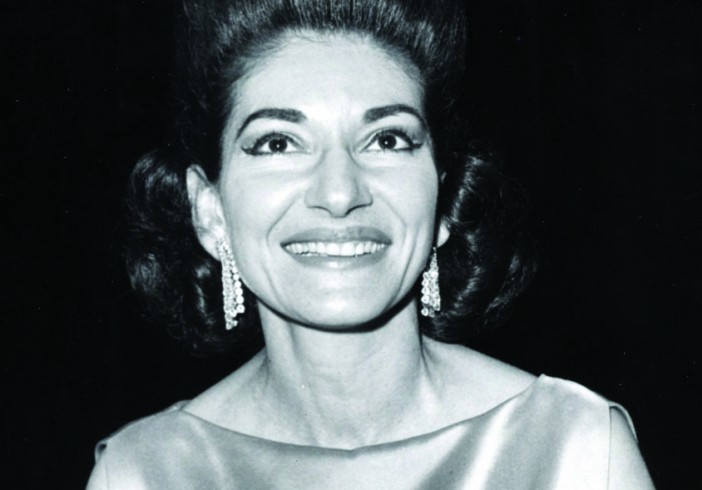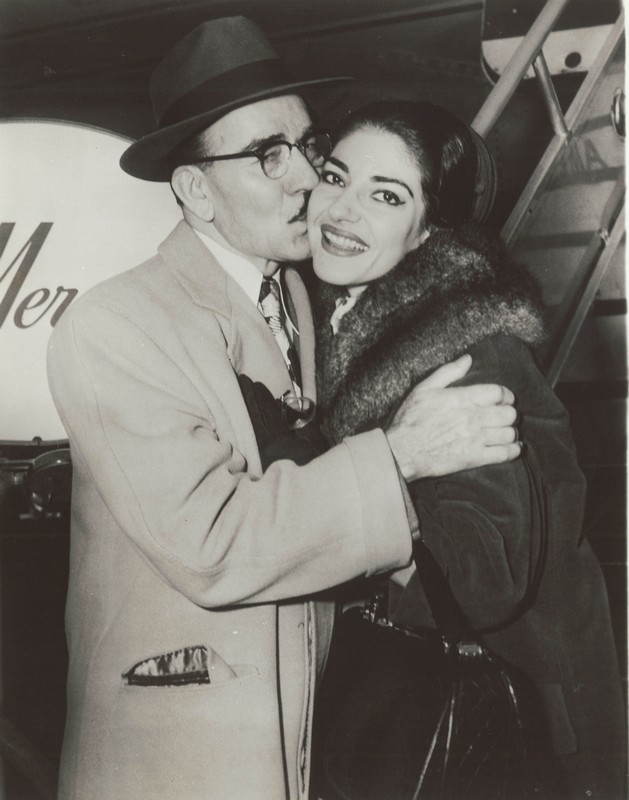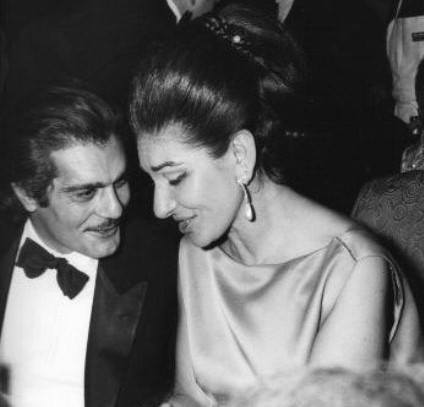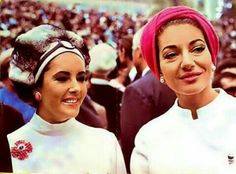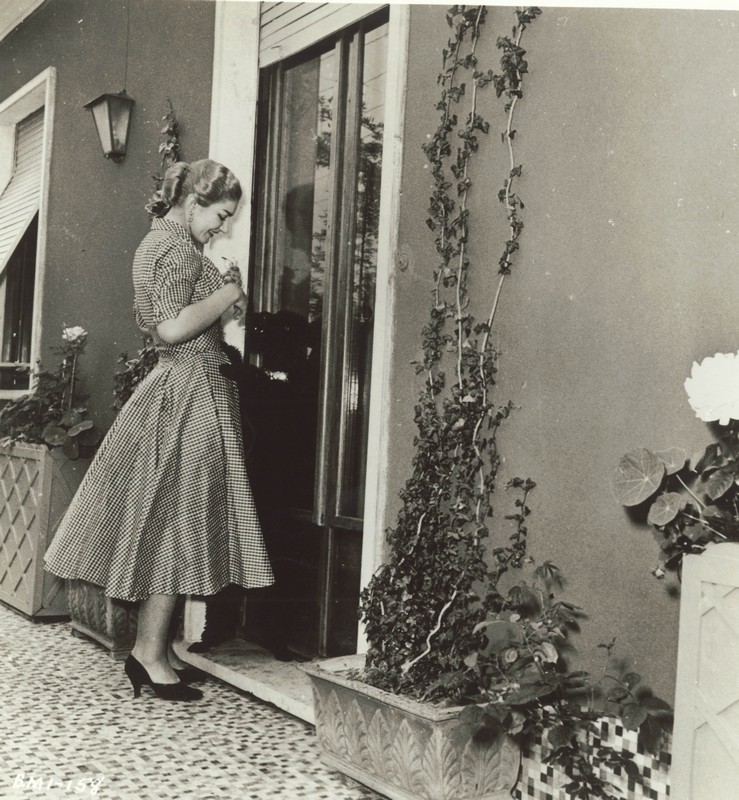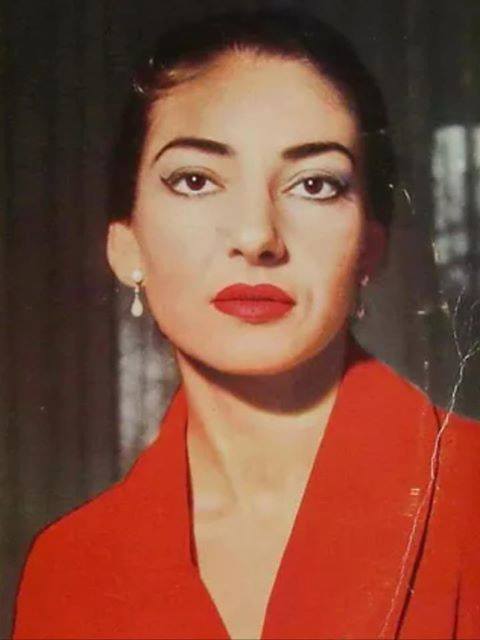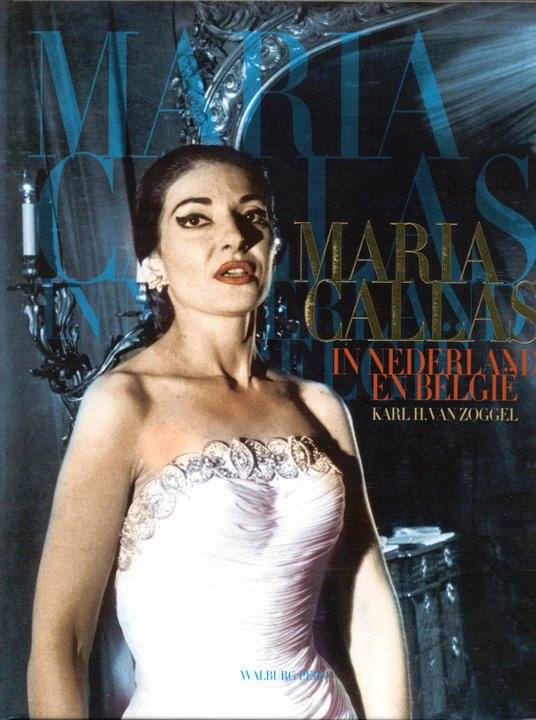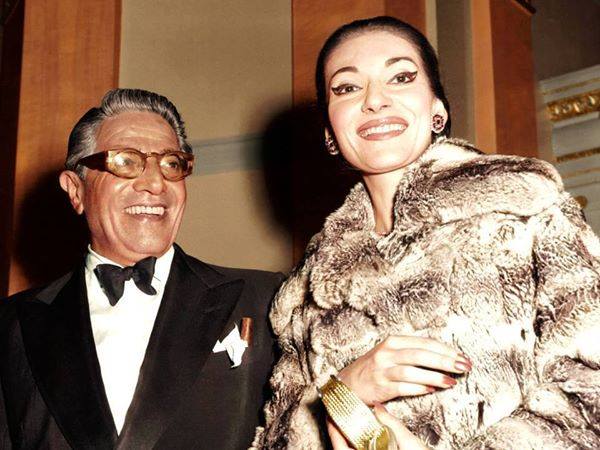On the occasion of the 40th anniversary of the death of Maria Callas on September 16, 1977, Mr. Kyriakos Loukakos[1] reminds us of what an important Greek artist and personality she was, and how proud we must be of the fact that she constitutes a part of our national heritage.
by Vassiliki Papagiannopoulou – Maria Callas Estate
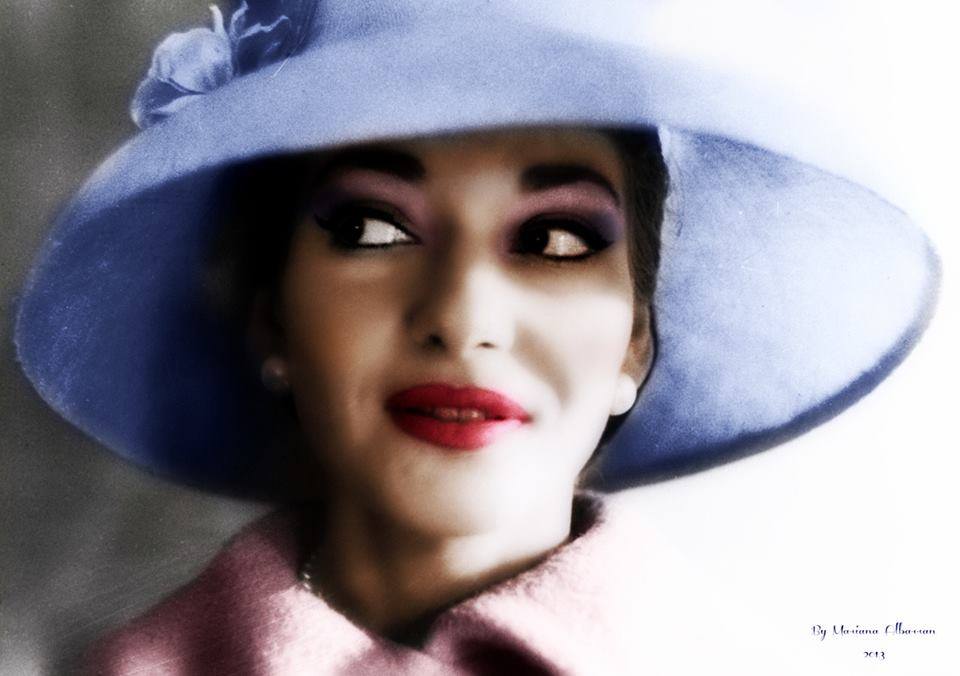 What was the family of Maria like? Did they play a role in her pursuit of and development in singing?
What was the family of Maria like? Did they play a role in her pursuit of and development in singing?
Four decades after the premature death of Maria Callas, I think that it is time this great figure of Lyrical art and the people who surrounded her were redefined in terms of historical record. The tensions that prevailed in her relationship, mainly with her mother and less with her sister, at the height of her career should by no means obscure the role her family played in shaping her personality. The daughter of Greek immigrants, Maria Callas was born in New York, where her father, a pharmacist from Neohori of Messenia in the Peloponnese, and his much younger wife, Maria’s mother, a daughter of a bourgeois family of Constantinople, were trying to build a new life in the aftermath of the Asia Minor disaster. A second ordeal, the great economic crisis of 1928, contributed to the ultimate alienation of a couple already confronted with issues of incompatibility in character and ambitions. In this atmosphere grew up both daughters of the family, the good-looking Jackie and the graceless and myopic Maria, burdened by the implications of complexes that usually afflict offsprings of divorced parents. And yet, under such heartrending and stressful coditions, the mother engaged herself in a strenuous struggle to restore the two young girls’ economic and social standing by means of their musical education.
To question the importance accorded to these highly dedicated and maybe exaggerated efforts of Evangelia Callas regarding Maria’s artistic evolution equals questioning the crucial influence of the pressing father Leopold on Wunderkind Mozart. Most important though seems that, moving repeatedly between Europe and America, the young and burdened with insecurities Maria was led by her mother (and without paternal objections either) to the enchanting retreat of Music and to a love of Art nurtured in the most demanding way, a way that eventually formed in her professionalism as well as perfectionism. From then on, the path was paved for years of musical education in pre-war Athens, a small but attractive town to the Europeans, and with a zeal akin to an adolescent proselyte.
Was reaching the top a result of her inherent talent, or of hard work and discipline as well ? The amazing change in her appearance shows she was determined to succeed in acquiring the whole “pack” and not just a perfect voice, isn’t that so?
I have already implied that! Unshakably convinced of both of her daughters’ abilities, Callas’s mother led them early on to several talent shows in the US, familiarizing them gradually with the hard, yet sane nature of demanding competition. To achieve this she did not hesitate to enroll Maria in the Conservatory stating an inaccurate age, nor to move her from Maria Trivella’ s tuition, her first professor at the «National Conservatory» who opted for a heavier repertoire, to that of the famous Spanish coloratura soprano Elvira De Hidalgo of the still flourishing «Athens Conservatory», who redirected Maria’s voice towards lighter vocal aspirations. Before even turning twenty, Maria had joined the Athens Opera House, acquiring many admirers among German and Italian cognoscenti of the Axis occupation armed forces. Throughout this course, as well as in hardships to follow, initially due to the envy of her colleagues who, after Greece’s liberation, succeeded in excluding her from roles in the Theater as an accomplice of the Occupants, and, subsequently, during the two debilitating but interesting years of her return to the United States (1945-47), Callas consistently went on building up her artistic armor and thus proceeded through a peculiar fate, but in fact as if having been always ready, to becoming an overnight international celebrity in the summer of 1947, as La Gioconda in Amilcare Ponchielli’s eponymous opera, staged by the Arena di Verona.
However, certain myths that surround her meteoric career take-off need to be reassessed as they certainly do Maria Callas no justice. Callas went through the largest and by far most dense part of her career, roughly from 1947 to 1954, not as the beauty icon seeking to stimulate socialite public opinion. The particular, complex quality of her timbre and the great dramatic expressivity of her vocal and theatrical acting had already made themselves evident and had been fully acknowledged since the early years of her prime, owing to the hard effort and discipline which you hinted at in your question. In fact, her vocal zenith coincides with Callas’ beauty only for a very limited time. It’s an important instant though, as it elevated her to a valuable instrument in the hands of great directors. Her collaboration with, among others, Luchino Visconti, Margherita Wallmann, Franco Zeffirelli and Alexis Minotis, established her emblematic position as a symbol for the revision of interpretative prerequisites applying to a key chapter of –mainly- Italian opera and ranging from belcanto to verismo. But, from one point onwards, voice and image diverged increasingly from one another.
With her beloved father Georgios Kalogeropoulos
Who were the people who helped her and advised her on her way to success
Apart from her mother, whose role I cannot regard too highly, two people proved instrumental in paving her very distinct course in such a memorable way. Her much elder husband for many years, Giovanni Battista Meneghini, abandoned his business to serve her and diligently safeguard, like a true Cerberus, a highly organized, disciplined and comfortable way of life for Maria, focused solely on Art and free of any everyday and social concern. And then, of course, the legendary Italian conductor Tullio Serafin, the mentor of other great lyric artists before and after Her. It is he who nurtured her talent, ingeniously harmonized her two opposite educational backgrounds and persuaded her to alternate, in a matter of just a few weeks, the role of Brünnhilde in Wagner’s «Die Walküre» with that of Elvira in Bellini’s «Il Puritani»; a unique game of fire that triggered performances of surpassing virtuosity and dramatic effect, but also a game that was inevitably not meant to be long lasting …
 What, in your opinion, were the features besides her voice that made her stand out on stage? What was it that mesmerized the audience at her live appearances?
What, in your opinion, were the features besides her voice that made her stand out on stage? What was it that mesmerized the audience at her live appearances?
In order to answer this question, allow me to take a step back to the incidental listening of a French Radio program of May 1, 2017, “Bel canto senza voce“, and you will understand why I consider it representative of the uninterrupted impact of the unique voice of Callas. Two of the most prominent instrumentalists of the younger generation, violist Antoine Tamestit (* 1979) and pianist Cédric Tiberghien (* 1975), whose dates of birth coincide roughly with her death, presented a record featuring among others arias in transcriptions for viola and piano. For the start of the program, the two selected “Casta Diva”, of course with Maria Callas. On the highly experienced presenter’s observation, the distinguished musicologist and philologist Lionel Esparza, that they had chosen “the absolute reference” (“la reference absolue” in his very words), they both rushed to refer to this recording as the cradle of their interest in Music and an album whose sounding in their family homes, in their early childhood, had left an indelible impression on them. The pianist even went a step further to describe her voice as unmistakable and instantly recognizable, imbued with a degree of expressivity and emotional depth that surpasses any technical error, a “world heritage of humanity”, verbatim “un patrimoine de l’humanité”.
I will never forget, on the other hand, the short memorial letter of a reader in a 1977 issue of the prestigious American magazine Stereo Review, a few weeks after the death of the Diva, which caught us all by surprise. A young woman, who -mind you- declared not being an opera fan, had heard one day a voice coming from the space of her musical brother. As if enchanted, she headed for the room to find out who it was. She concluded this short letter defining this as a life changing experience. So, undeniably, Callas was a combination, in one and the same person, of very special qualities, regarding skill and interpretation. Defying rules and facts, she symbolically marked everything she touched. And of course, via either her stage and concert appearances, or her records, she approached every work intuitively and with a passionate dedication to the text, almost ecstatically possessed by its musical and dramatic truth.
With Omar Sharif
When did she reach the peak of her glory? Did she actually lose her voice at all?
The golden age of Callas was the decade from 1947 to 1957. Various factors rendered the exceptional long-term serving of such a varied repertoire as hers difficult to sustain. That is a repertoire combining masterpieces destined for a light coloratura soprano with others demanding a lyric soprano, a lirico spinto or a dramatic one. Her vocal elasticity would not last for long. Callas herself, too, had begun to gradually abandon some roles and concentrate on others, usually without the possibility of return. And beyond that, certain factors having to do with her deeper personal needs gradually carried her away from the strict discipline of the lyric artist and lured her into experiments and deviations aiming at the pervasive recognition of her female charm. All this eventually broke both her voice and her soul, even her own will for life. But even these sad developments are facets of the same person, a person who, by her artistic and other qualities and determinations, acquired “messianic” dimensions in the field of her work, the Opera, one of the pinnacles in modern European culture.
She was a world-renowned personality and a world citizen. Do you think that in this context she managed to safeguard some Greek identity?
Callas’ relationship with Greece was undoubtedly traumatic. Her teenage and post-teenage life in Athens was associated with a difficult passing into adulthood, that is the Occupation of the country by the Axis forces and the bitter aftertaste reserved for her by her envious colleagues owing to her great success as a leading opera singer of our National Opera House. Reported as an accomplice of the conqueror, barred – at the request of her earlier stage companions – from the programming of the newly-founded Greek National Opera, and with her life being at risk, similarly to the tragic case of actress Eleni Papadakis, Callas, embittered, abandoned in 1945 her country of origin and of domicile after the trauma of her parents’ divorce. But even 12 years later, in 1957, when back in Athens and albeit being a worldwide celebrity, but also worn out by the two most fruitful and intensive artistic periods of her career, Callas received unprecedented attacks from the press, as she felt able to respond solely to one of her two already sold-out concerts at the Herod Atticus Theatre. The amount of money she requested as a fee was demonized as being almost detrimental to the Greek State, leading to an outcry against Konstantinos Tsatsos, then Minister of Home Affairs in the (senior) Konstantinos Karamanlis’ government.
I also recall, in the early 1970s, Athena Spanoudis, an excellent collaborator of the National Program of EIR (Ethnikon Idryma Radiofonias/National Radio Foundation), reminiscing on her show “Musical Themes”, a personal moment with the Primadonna, as the latter was descending the stairs of the Great Britain Hotel heading to the Herod Atticus Odeon for her only personal concert on August 5, 1957, as a soloist of the Athens Festival Orchestra under Italian conductor Antonino Votto:
” Sono sulla croce ” (I am being Crucified) were the words that Maria whispered in Spanoudis’ ear holding her hand tightly, according to the latter’s recollection.
With the risk of overstepping the boundaries of space on your magazine, it is worth combining this radio confession with another one, referring roughly to the same period of time and deriving from her close colleague and lifelong friend, bass Nicola Zaccaria. The story goes that after a triumphant guest performance of Vincenzo Bellini’s ” La Sonnambula” (The Sleepwalker) by the Teatro alla Scala company in Cologne, West Germany on July 4, 1957 featuring Callas and Zaccaria under Votto’s baton, the two eminent Greeks awaited in vain a visit or a call from the Greek consul of the city, who, according to Zaccaria, refused that courtesy, commenting that “these two have now moved away from Greece”. Zaccaria took this to heart until the end of his life, why not Callas herself I wonder…
However, despite her long and deep relationship with the USA, Italy and France, as well as the successive changes in her nationality, Callas was deeply aware of her Greek origins. She spoke Greek, though somewhat broken due to her long stay in other countries, and upon returning to Athens she was glad to meet again old and beloved acquaintances, established the “Maria Callas Scholarships” and, during an interview, she stated on the microphone that “My blood is Greek and nobody, in any way, can delete that”, which might well answer the question you posed. So, by no accident, feeling a need to do her justice regarding this very issue, I chose to include this very phrase, uttered in her own unparalleled timbre, in the signature tune of a 28 hourly broadcasts series I was asked to prepare in 1997, a kind of biographical attempt on my part, for ERΤ’s (Hellenic Broadcasting Corporation) Third Radio Programme, on the occasion of 20 years since her death.
Also, let us not forget that this sharing of the same Greek blood and, naturally, their shared Greek genius proved instrumental for her well documented love affair with Aristotle Onassis. Added to that, and once again citing the late and for 10 years close and beloved friend Nicola Zaccaria, I must point out that her Greek element was a kind of shared consciousness for others as well, such as the famous Austrian conductor of Greek descent Herbert Von Karajan, who, according to Zaccaria, had repeatedly urged them to address each other in Greek, while in his presence, so as to relish at least the acoustic sense of his own distant Greek origins
With Aristotle Onassis
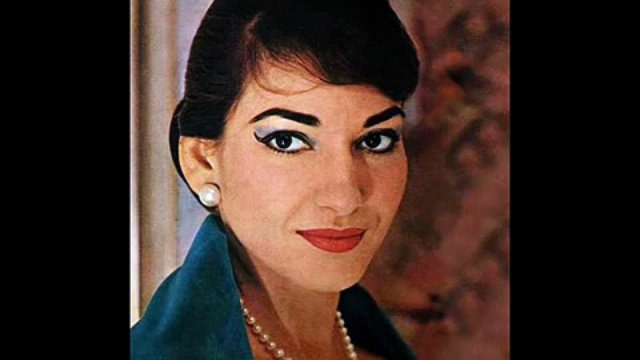 What emotions does the sound of Maria Callas’ name and voice stir in the younger generations of Greeks?
What emotions does the sound of Maria Callas’ name and voice stir in the younger generations of Greeks?
I regret to say that your last question will receive a rather pessimistic answer! The complete lack of essential music culture in the basic Greek Education, as well as the gradual degeneration of a country that has always leaned more towards the East, has led to a widespread functional illiteracy in music among other things. The name of Callas is used, more often than not in good faith, as an alibi for the promotion of initiatives and actions of hardly any cultural value, if not shallow in perspective and organization or even downright offensive to everything that She served with a high sense of perfectionism, integrity and passion. In this sense, it becomes crystal clear why the main international airport of our country, a big central square of Athens or the boulevard on which her most famous Athenian home stands do not bear her name. It also becomes clear why the very building where she spent most of her youth on 61, Patission Street in Athens has not for decades been restored to host either a Museum and / or a high-quality certified, public Music Academy.
This fact cannot but cause great sadness for the country itself, for Greece, which seems to be increasingly shrinking and lacking in human resources; not for Callas though, for she belongs to the sum of universal Humanity, as well as the to the Art that she served. In other words she belongs to an Oecumene, where, as long as Culture survives, she will never seize to be acknowledged and admired as a symbol and, as I have already mentioned, in this respect she will continue, without a moment of hesitance, to be recognized as an integral part of the world’s cultural heritage! …
 [1] Music and Lyric Theatre critic Kyriakos Loukakos is considered to be a leading vocal connoisseur in Greece. He is an attorney at law and a Dr. Juris of the Cologne University. In 1991, he joined the Greek Ministry of Internal Affairs as a member of its Strategic Policy Unit and, as of 1998, he has been a senior investigator at the Quality of Life Department of the Greek Ombudsman’s Office. But music has been his lifelong passion, leading to the formation of his own extensive archive of records and privately recorded performances on several kinds of sound carriers. Therefore, from 1994 to 2010 he has commented and presented almost every opera feature for Greek Radio 3, including innumerable EBU direct relays and deferred transmissions, as well as contributing an extensive series of vocal artists’ and conductors’ portrayals. In 1997, commemorating the 20th anniversary of her passing, he presented a 28- hour step-by-step biographical radio homage to Maria Callas and the total output of her recorded roles, for the first time as a whole in radio chronicles. He also reported for the ERT WORLD TV cultural program “9+1 Muses”. Since 1997 he is the music critic of the Sunday edition of the Athens daily journal “I AVGI”. He has provided texts for practically every major musical institution of his country (Athens Megaron Concert Hall, Athens Festival, Thessalonica Megaron Concert Hall, Greek Parliament Foundation, Athenaeum International Cultural Center, European Cultural Centre of Delphi, etc.) as well as serious cultural magazines (Peritechno, Odos Panos, To dendro, Classical Music, etc). He further supervised a CD-set edition of 7 complete operas in rare archival recordings featuring distinguished soprano Vasso Papantoniou. In 2011 he managed extensive bilingual texts and overall supervision of a lavish 4-cd set, issued by “The Friends of Music Society” of the Athens Megaron Concert Hall and devoted to hitherto unpublished recordings from the archive of the late (mezzo) soprano Arda Mandikian, a close collaborator of Benjamin Britten and Sir Peter Pears and the Dido in both the first ever complete performance of Berlioz’s Les Troyens, in Oxford (1950), and the subsequent first complete recording of its second part, Les Troyens a Carthage, under the baton of Hermann Scherchen. The set was favorably reviewed by such prestigious international periodicals as International Record Review, Opera magazine, The Record Collector and Classical Recordings Quarterly and was accorded the 2012 “Gina Bachauer International Foundation” Record Prize. Since 2011 Dr. Loukakos further reports regularly, in Greek and in English, for the e-magazine for drama, dance and music critique www.critics-point.gr and for the bimonthly periodical ILIAIA. In 2005, 2009, 2012 and 2015 he was elected Chairman of the Greek Drama and Music Critics’ Association, a union established in 1928 and a member of the International Association of Theatre Critics, operating under the auspices of UNESCO. Since 2013 he is secretary general of the “Maria Callas Scholarships Society” and, in 2015, he complied to enroll as a member of the “Citizens Movement for an Open Society” and of the “Athens Conservatory” Society.
[1] Music and Lyric Theatre critic Kyriakos Loukakos is considered to be a leading vocal connoisseur in Greece. He is an attorney at law and a Dr. Juris of the Cologne University. In 1991, he joined the Greek Ministry of Internal Affairs as a member of its Strategic Policy Unit and, as of 1998, he has been a senior investigator at the Quality of Life Department of the Greek Ombudsman’s Office. But music has been his lifelong passion, leading to the formation of his own extensive archive of records and privately recorded performances on several kinds of sound carriers. Therefore, from 1994 to 2010 he has commented and presented almost every opera feature for Greek Radio 3, including innumerable EBU direct relays and deferred transmissions, as well as contributing an extensive series of vocal artists’ and conductors’ portrayals. In 1997, commemorating the 20th anniversary of her passing, he presented a 28- hour step-by-step biographical radio homage to Maria Callas and the total output of her recorded roles, for the first time as a whole in radio chronicles. He also reported for the ERT WORLD TV cultural program “9+1 Muses”. Since 1997 he is the music critic of the Sunday edition of the Athens daily journal “I AVGI”. He has provided texts for practically every major musical institution of his country (Athens Megaron Concert Hall, Athens Festival, Thessalonica Megaron Concert Hall, Greek Parliament Foundation, Athenaeum International Cultural Center, European Cultural Centre of Delphi, etc.) as well as serious cultural magazines (Peritechno, Odos Panos, To dendro, Classical Music, etc). He further supervised a CD-set edition of 7 complete operas in rare archival recordings featuring distinguished soprano Vasso Papantoniou. In 2011 he managed extensive bilingual texts and overall supervision of a lavish 4-cd set, issued by “The Friends of Music Society” of the Athens Megaron Concert Hall and devoted to hitherto unpublished recordings from the archive of the late (mezzo) soprano Arda Mandikian, a close collaborator of Benjamin Britten and Sir Peter Pears and the Dido in both the first ever complete performance of Berlioz’s Les Troyens, in Oxford (1950), and the subsequent first complete recording of its second part, Les Troyens a Carthage, under the baton of Hermann Scherchen. The set was favorably reviewed by such prestigious international periodicals as International Record Review, Opera magazine, The Record Collector and Classical Recordings Quarterly and was accorded the 2012 “Gina Bachauer International Foundation” Record Prize. Since 2011 Dr. Loukakos further reports regularly, in Greek and in English, for the e-magazine for drama, dance and music critique www.critics-point.gr and for the bimonthly periodical ILIAIA. In 2005, 2009, 2012 and 2015 he was elected Chairman of the Greek Drama and Music Critics’ Association, a union established in 1928 and a member of the International Association of Theatre Critics, operating under the auspices of UNESCO. Since 2013 he is secretary general of the “Maria Callas Scholarships Society” and, in 2015, he complied to enroll as a member of the “Citizens Movement for an Open Society” and of the “Athens Conservatory” Society.

